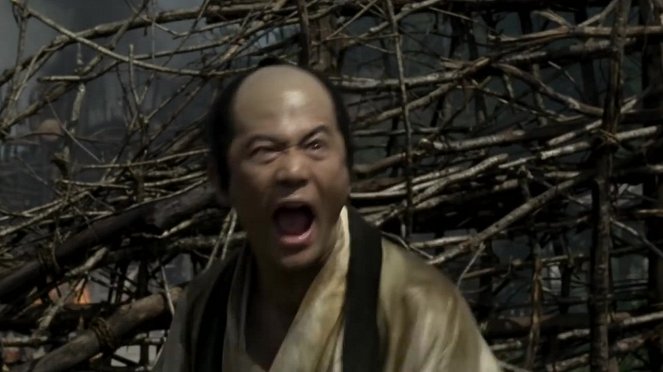Rendező:
Takashi MiikeForgatókönyvíró:
天願大介Operatőr:
北信康Zeneszerző:
Kōji EndōSzereplők:
Kōji Yakusho, Takayuki Yamada, 伊勢谷友介, Gorō Inagaki, Tsuyoshi Ihara, Ikki Sawamura, Arata Furuta, Sousuke Takaoka, Seiji Rokkaku, 窪田正孝, Ken Mitsuishi (több)Tartalmak(1)
Cult director Takeshi Miike (Ichi The Killer, Audition) delivers a bravado action film set at the end of Japan's feudal era in which a brave group of elite samurai are enlisted to bring down a sadistic lord and his army to prevent him from ascending to the throne and plunging the country into a war torn future. (forgalmazó hivatalos szövege)
Recenziók (3)
Samurai fairness, where at the beginning two of them say they're going to fight at the end of the film, and half the film is a luxuriously filmed preparation for a battle that I have personally missed on screen for some time now. Miike is excellent, for example, in the way he introduces the villain and offers the synecdoche his villainy is terrifying and demonic. Thirteen Assassins has a truly old-world spirit, and blood and mud won't change that. It's a beautiful heroic epic about pride and devotion to the ideal, and I haven’t enjoyed an action movie this much in a long time. Woo and Chan can go bury themselves with shame, that's how you make a real rumble!
()
A Samurai genre movie “a body at each wave of the katana" style which benefits from its considerable (but successful) length, which heightens the viewer’s feeling of involvement with the thirteen assassins going to their death during the forty-five minute long “13 against 200" showdown. It’s a long time since we’ve seen such a well-made and genre-pure movie of a similar type, even though it brings nothing new. Otherwise, we see an almost unusually calm and normal Miike for a change.
()
The Japanese are remaking some of their older pieces, but in the case of Takashi Miike, I was not afraid that it would not be a very distinctive and strong remake. The basic story remains, but Miike adds his rough stylization, where he does not unnecessarily show off, mostly, but all the elements used here, mainly violence, are just to emphasize how cruel the story is, or rather how cruel some people are. Shooting a child with a bow is truly terrifying, and in this case, Miike spares the viewer from naturalism. However, Miike also takes care of excellent period stylization. In this film, I once again had the feeling that the destruction being carried out is real. Senseless, but meaningful, unlike in "Man of Steel".
()

